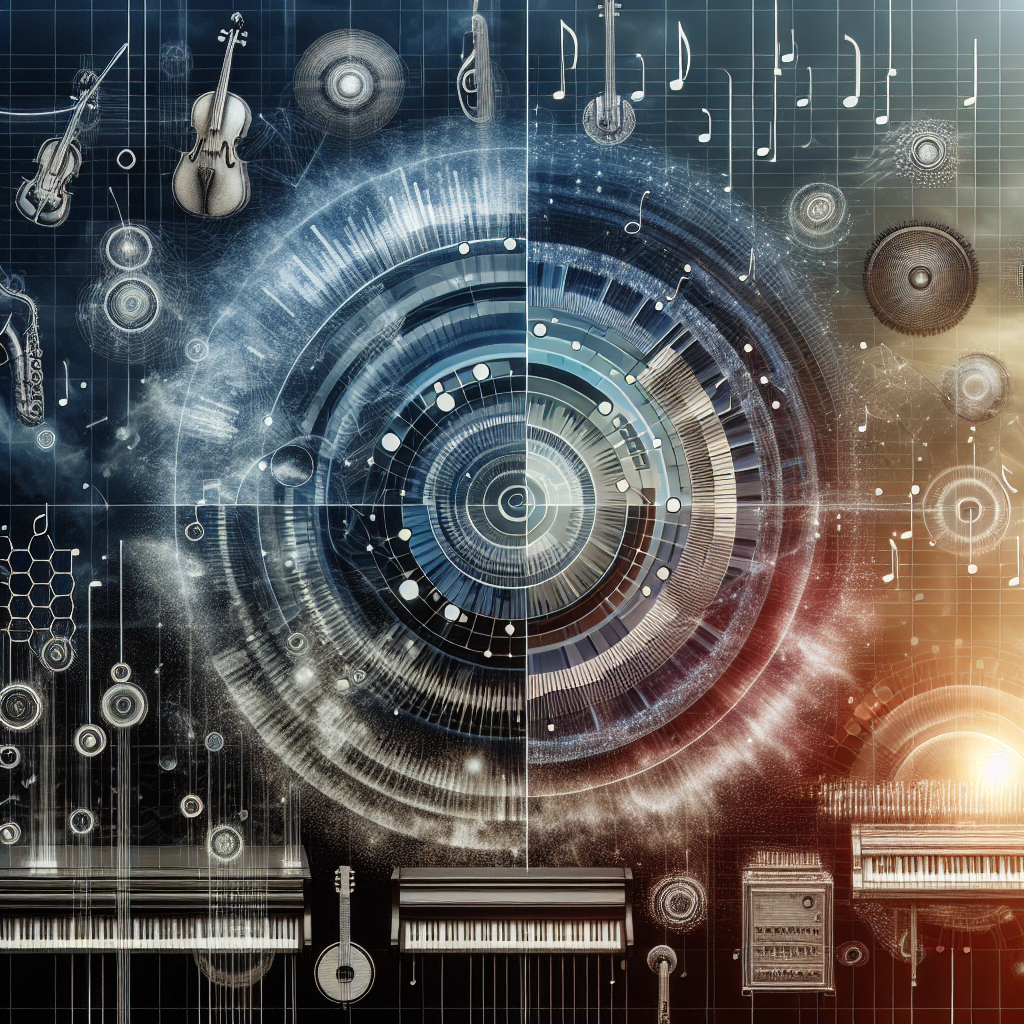AI in Music: From Algorithms to Artistry
Artificial Intelligence (AI) has revolutionized many industries, and the music industry is no exception. From composing music to generating lyrics, AI has opened up new possibilities for musicians and music lovers alike. In this article, we will explore the different ways AI is being used in music, from algorithmic composition to enhancing creativity and artistry.
Algorithmic Composition
One of the most common applications of AI in music is algorithmic composition. AI algorithms can analyze existing music to identify patterns and structures, which can then be used to generate new compositions. This can be particularly useful for musicians who are looking for inspiration or struggling to come up with new ideas.
One example of algorithmic composition is the use of neural networks to create music. Neural networks are a type of AI that can learn to recognize patterns in data and generate new outputs based on those patterns. By training a neural network on a large dataset of music, it can learn to compose music in a similar style.
Another approach to algorithmic composition is the use of genetic algorithms. Genetic algorithms are based on the principles of evolution and natural selection, where variations of a solution are generated and tested against a fitness function to determine their success. In the context of music, genetic algorithms can be used to evolve melodies and harmonies over time, creating new compositions that are inspired by existing music.
Enhancing Creativity and Artistry
AI is also being used to enhance creativity and artistry in music. For example, AI can be used to generate lyrics or melodies that can serve as a starting point for musicians to build upon. This can be particularly useful for songwriters who are looking for new ideas or struggling to overcome creative blocks.
AI can also be used to analyze and classify music, helping musicians to better understand the structure and style of different genres. This can be particularly useful for producers and composers who are looking to create music that resonates with a specific audience or fits a particular mood or theme.
In addition, AI can be used to assist musicians in the production process. For example, AI algorithms can be used to automatically mix and master tracks, saving musicians time and effort in the studio. AI can also be used to generate personalized recommendations for listeners, helping them discover new music that matches their tastes and preferences.
FAQs
Q: Can AI really create music that is as good as human composers?
A: While AI has made significant advancements in music composition, it is still a long way from being able to match the creativity and emotion of human composers. However, AI can be a valuable tool for musicians in generating new ideas and exploring different styles.
Q: How can musicians benefit from using AI in their music?
A: Musicians can benefit from using AI in a variety of ways, including generating new compositions, enhancing creativity, and improving the production process. AI can help musicians to overcome creative blocks, explore new genres, and reach a wider audience.
Q: Is AI a threat to traditional musicians and composers?
A: While AI has the potential to disrupt the music industry, it is ultimately up to musicians and composers to embrace new technologies and find ways to incorporate them into their creative process. AI can be a valuable tool for musicians, helping them to expand their creativity and reach new audiences.
Q: What are some examples of AI in music?
A: Some examples of AI in music include algorithmic composition, neural networks for music generation, genetic algorithms for evolving melodies, and AI-assisted production tools for mixing and mastering tracks. AI is also being used to analyze and classify music, generate personalized recommendations for listeners, and enhance creativity and artistry in music.
In conclusion, AI has the potential to revolutionize the music industry, from algorithmic composition to enhancing creativity and artistry. While AI may never be able to match the emotional depth and creativity of human composers, it can be a valuable tool for musicians in generating new ideas, exploring different styles, and reaching a wider audience. By embracing new technologies and finding ways to incorporate them into their creative process, musicians can take advantage of the benefits that AI has to offer in the world of music.

